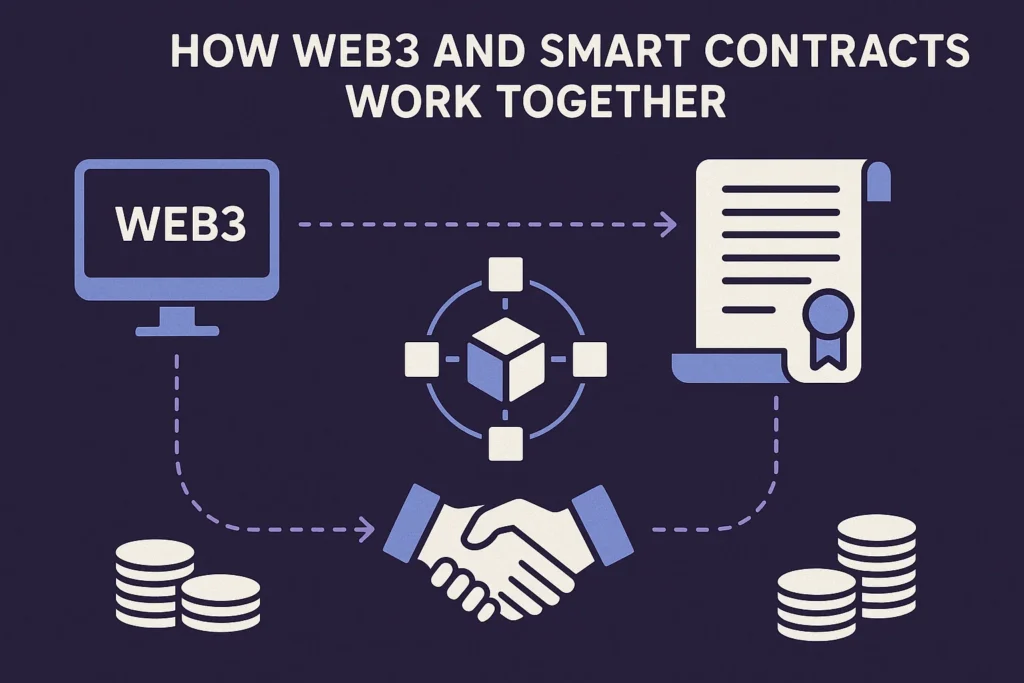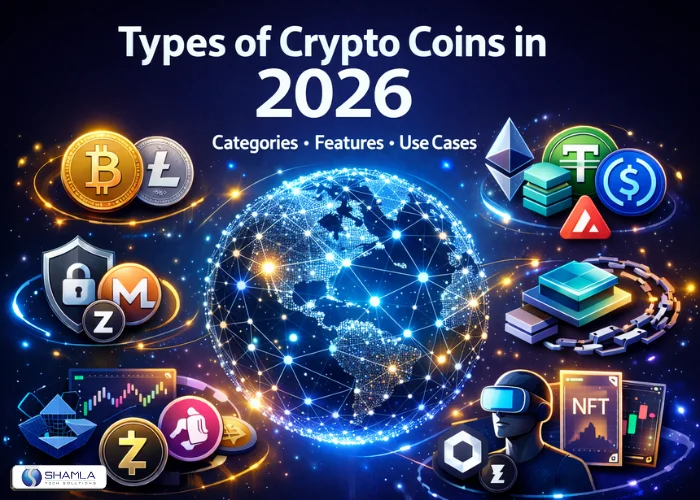What is Web3?
First things first, let’s get a grip on what Web3 actually is. In simple terms, Web3 is the third generation of the internet, a decentralized version that aims to hand over control to users rather than large corporations. Imagine having the power to control your data, identity, and digital assets without relying on tech giants. That’s Web3 for you.
Web3 is built on blockchain technology, which ensures transparency and security. With Web3, you’re not just a user; you’re a participant. Sounds empowering, right?
The transition from the traditional Web2 to Web3 marks a shift in how we engage with the internet. Web2 is characterized by centralized platforms like Facebook and Google, where user data is stored and monetized by these corporations. In contrast, Web3 offers a decentralized approach, promising greater privacy, transparency, and user autonomy.
This decentralization is facilitated by distributed ledger technologies, where data is stored across a network of computers, making it tamper-proof and resilient to single points of failure. At the heart of this evolution lies Web3 Smart Contract Development, enabling automated, trustless interactions that power decentralized applications and services across this new internet landscape.
Understanding Smart Contracts
Now, you might be wondering, what exactly are smart contracts? Well, they’re a bit like traditional contracts but with a digital twist. Smart contracts are self-executing contracts with the terms of the agreement directly written into lines of code. They automatically execute and enforce actions without the need for intermediaries.
Think of them as digital vending machines. You put in the required input (money, crypto, etc.), and the machine (smart contract) delivers the product (service, asset, etc.) without any human intervention. Pretty neat!
Web3 Smart Contract Development is based on a decentralized ledger, which ensures that all parties involved have access to the same data, thus fostering trust and minimizing disputes. This automation not only saves time but also cuts down costs associated with manual verification and processing. It also reduces the potential for human errors, making transactions more reliable and efficient.

How Web3 and Smart Contracts Work Together
Web3 and smart contracts go together like peanut butter and jelly. They complement each other perfectly. Web3 provides the decentralized platform, while smart contracts automate the processes on that platform.
For instance, when you’re using a decentralized application (dApp) built on Web3, it’s the smart contracts that manage the transactions, data flow, and interactions. They ensure everything runs smoothly and securely. This is where Web3 Smart Contract Development plays a crucial role—powering the invisible team working tirelessly behind the scenes.
The synergy between Web3 and smart contracts is pivotal for creating trustless environments where users can engage in transactions and business dealings without needing to trust the other party blindly. Trust is placed in the immutable code that executes contracts. This setup is particularly beneficial in industries where trust has traditionally been a barrier to smooth transactions, such as in finance and real estate.
Real-world Applications of Web3 Smart Contracts
Decentralized Finance (DeFi)
DeFi is a game-changer in the financial sector. With smart contracts, you can lend, borrow, and trade cryptocurrencies without a bank. It’s like having your own financial institution at your fingertips. Just imagine all the fees you’re gonna save!
DeFi platforms facilitate peer-to-peer transactions, removing the need for traditional financial intermediaries like banks and brokers. This not only democratizes access to financial services but also opens up new opportunities for individuals in regions with limited banking infrastructure. Additionally, DeFi platforms often offer higher interest rates on savings compared to traditional banks, attracting more users to the ecosystem.
Supply Chain Management
Tracking the journey of products from the manufacturer to the consumer can be a headache. Enter smart contracts. They ensure transparency and traceability, reducing fraud and errors. It’s easy as pie to see where your product has been and how it got to you.
In supply chain management, smart contracts can automate and verify the transfer of goods at each stage, from production to delivery. This automation reduces the risk of counterfeit products entering the market and ensures compliance with regulatory standards. Moreover, stakeholders in the supply chain can access real-time data, facilitating better decision-making and resource allocation.
Digital Identity
Remember all those times you’ve had to prove your identity online? With smart contracts, digital identity becomes seamless and secure. Your personal data stays in your control, and you decide who gets to see what. It’s like having a digital passport that’s always with you.
Digital identity solutions powered by smart contracts allow individuals to maintain control over their personal information, reducing the risk of identity theft and data breaches. Users can share specific pieces of information with service providers, ensuring privacy and security. This has applications in various sectors, including healthcare, finance, and government services, where verifying identity is crucial.
The Future of Web3 Smart Contract Development
Looking ahead, the potential for Web3 and smart contracts is immense. As more industries recognize the benefits, adoption will skyrocket. We’re talking about a future where everything from healthcare to real estate could be powered by smart contracts.
However, with great power comes great responsibility. Developers and stakeholders must ensure that smart contracts are secure and free from vulnerabilities. After all, the last thing you want is a bug in your code causing chaos.
As we move forward, the focus will be on improving scalability, enhancing user experience, and integrating AI to make smart contracts even smarter. It’s an exciting time to be part of this digital revolution!
Scalability remains a significant challenge for blockchain technology, as current systems struggle to handle large volumes of transactions quickly and efficiently. Innovations such as layer 2 solutions and sharding are being developed to address these limitations, paving the way for wider adoption.
Moreover, enhancing user interfaces and experiences is crucial for attracting non-technical users to Web3 platforms, bridging the gap between complex technology and everyday use. As these improvements evolve, Web3 Smart Contract Development plays a pivotal role in ensuring that decentralized applications remain efficient, secure, and scalable in this growing ecosystem.
Integrating artificial intelligence with smart contracts could enable more sophisticated decision-making processes, where contracts can learn and adapt based on past interactions and external data inputs. This could lead to the creation of autonomous systems capable of managing complex tasks without human intervention, further revolutionizing industries worldwide.
Conclusion
Web3 is reshaping how we interact with digital systems—automating trust, enabling transparency, and powering decentralized applications across industries. From finance to identity management, smart contracts are revolutionizing the way business is done online. As adoption grows, secure, scalable, and efficient development will be key to future success.
Shamla Tech is a trusted Web3 development company specializing in Web3 Smart Contract Development. With deep expertise in blockchain technologies, Shamla Tech offers end-to-end solutions for building secure, scalable, and custom smart contracts. Whether you’re launching a DeFi platform or a dApp, Shamla Tech ensures a seamless, future-ready development journey.
Ready to harness the power of smart contracts for your business?
Partner with Shamla Tech for expert Web3 Smart Contract Development today!








